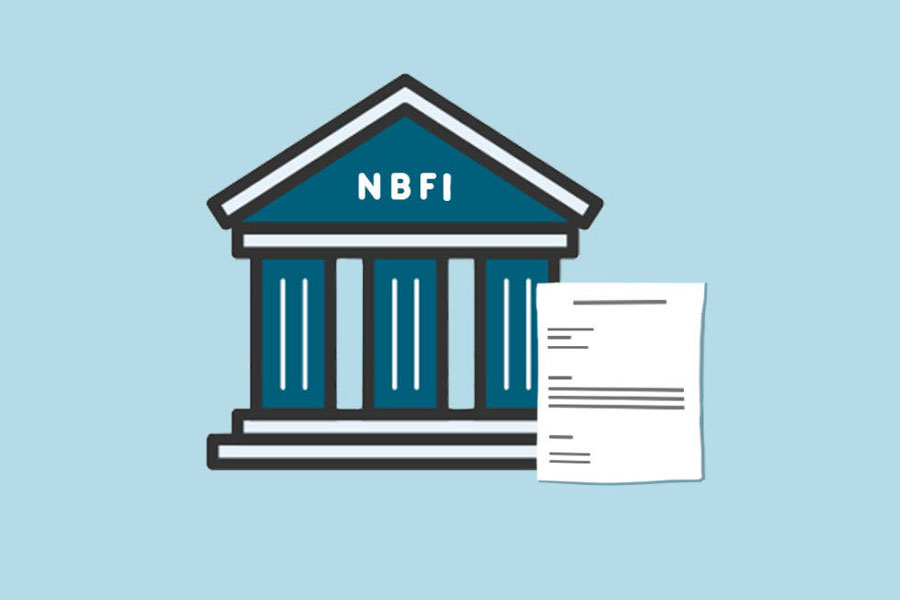
Published :
Updated :

The financial sector regulators led by the Bangladesh Bank (BB) must come to terms with their limited capacity for competence and performance relating to the non-banking financial institutions (NBFs). It's not a rant but the NBFI mess is so deep and murky that people have far less confidence in the financial sectors in general as a result. An inevitable perception that financial institutions whether banks or otherwise are not secure and will steal the depositors' money at the first chance is high and trust is gone. And for that the primary regulator, the central bank, has to bear significant responsibility.
Is the management of NBFIs by BB adequate is the question.The legacy of the NBFI management has been poor and perhaps the most symbolic mess has been the P.K. Haldar one. Though the authorities have not acted against any of the BB officials, the fact remains that this one single instance is enough to severely damage the confidence in such a regulatory institution.
The media has reported several times that the Haldar scam has been a "joint venture" between regulator officials and the fraudster. It also goes beyond the financial sector and even law enforcement and politicians have been named. But the inaction by the relevant authorities has deepened the distrust.
Today, Haldar is happily in jail in India which, sources say, has ensured the safety of his high level cronies involved in the scam in Bangladesh. Nobody can of course say if it's true or not but given the BB's regulatory record and public perception, most believe this sordid conjecture.
The recent guidelines issued by the BB recently mentioning a variety of issues are worth mentioning. These include default loan recovery targets, criteria over the appointment, reappointment and responsibilities of managing directors and chief executive officers (CEOs) of non-bank financial institutions (NBFIs) etc.
This is not the first set of guidelines published by the central bank. A review of media archives shows that such guidelines have been regularly circulated by it but there is no co-relative evidence to show that it has led to the improvement of performance of NBFIs.
Without going too far back, even a little over a month ago, it had issued similar guidelines for managing directors (MDs) and CEOs of banks to ensure good governance and reduce bad debts. This was followed by large loans to certain banks supposed to be in the better books of the authorities. One understands that network conveniences could be at work but then, that doesn't spare the BB either.
According to a media report, a total of 12 NBFIs in Bangladesh are running without an MD or CEO and a majority of them have had their top post vacant for more than three months in a clear breach of laws. Apart from the absence of top executives, the sector is reeling from scams, irregularities, a liquidity crunch and the presence of a huge amount of non-performing loans. Soured loans at the 35 NBFIs of the country stood at Tk 21,658 crore (21.658 billion) at the end of September last year, rising by 9 per cent from June in the same year and 25 per cent from that a year ago. The latest amount of bad loans accounted for 29.75 percent of the total outstanding loans of NBFIs at the end of September 2023.
No analyst worth their name would call the scenario optimistic. The problem is the regulator is without institutional or public accountability and not held responsible for outcomes. It is said that the BB doesn't have full autonomy as far as decision making is concerned. But it's equally true that they have a weak performance record with the authority they have.
The views of the NBFI sector on the BB are also very important. NBFIs, both performing and dysfunctional have set up an outfit to present their common view and position on financial matters called , "Bangladesh Association of Financial Companies " with over thirty such outfits are members. Its Vice Chairman, Jowher Rizvi, who chairs the Alliance Finance PLC, one of the few NBFIs with a positive record, said that he welcomes the decision of the BB on the guidelines for appointing CEOs.
"This is a right decision and will significantly ensure better performance at these institutions. It's true that some of them are facing problems regarding appointments of CEOs but we can't ignore the fact that many of the Boards are appointed either by the Bangladesh Bank or the High Court. "
The guidelines state that potential candidates must not have any business interest in the bank and cannot be involved with any association or institution of any director of the NBFI. If the candidate has citizenship of any country other than that of Bangladesh or is in the process of applying for permanent or long-term residency in another country, their detailed information has to be submitted with the central bank.
While all these regulations are fine, people's interest are in the safety and security of the deposit they make and those that have suffered as a result of fraud. Mr Rizvi didn't deny that several NBFIs have been very negative performers, but he insisted that the BB must play its proper role as the lender of resort to banks and financial institutions. " When an NBFIs gets into trouble, BB must step in. They have done so with several banks including massive loans to several shariah based banks. It can't discriminate between banks and NBFIs when it comes to its institutional role."
The malady in the entire financial sector runs deeper than one can think and BB has become a symbol of that.


 For all latest news, follow The Financial Express Google News channel.
For all latest news, follow The Financial Express Google News channel.